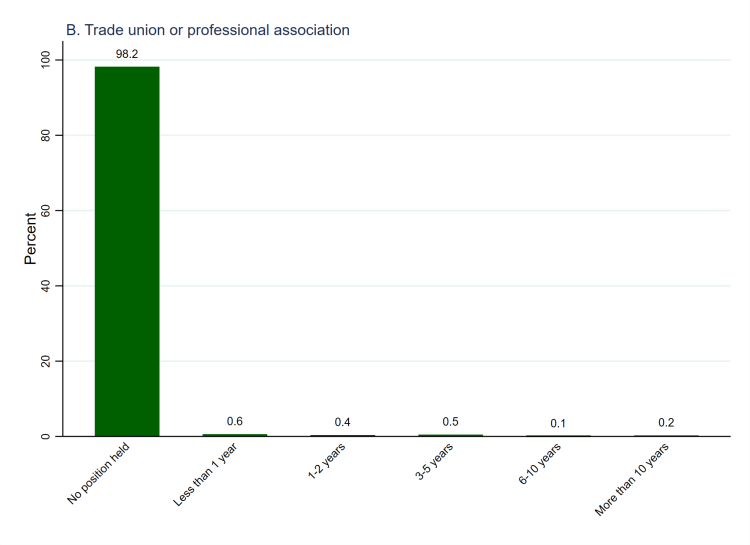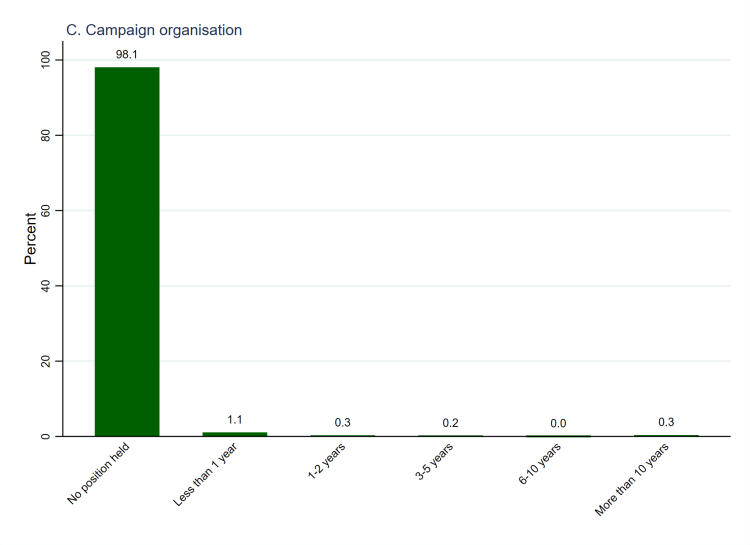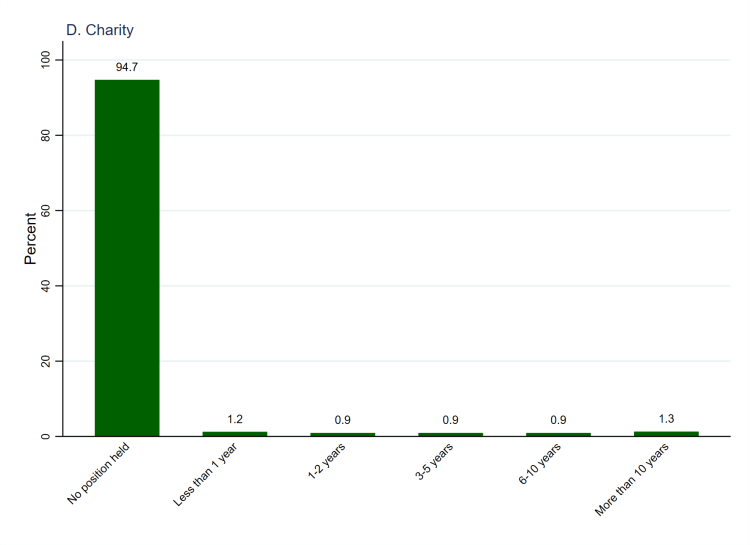As with organisation membership, those respondents who indicated that they hold an unpaid position of responsibility in an organisation were asked how long they had held it for. Their answers are presented in Figure 1 (above, using weighted data) and show that taking on an unpaid position of responsibility is a extremely minority pastime.[1] One in twenty people (5.2%, panel D) have held such a position for a charity for any length of time, and this is the highest figure across the different types of organisation. No more than one in fifty people holds an unpaid position of responsibility for campaign organisations (1.9%, panel C), trade unions and professional associations (1.8%, panel B), or political parties (2.0%, panel A). When compared with the figures for membership length, these figures support the unsurprising observation that fewer people are involved in voluntary activities as the amount of time and effort required for them increases.
We can also combine the above variables to see the longest amount of time that people have held any unpaid position of responsibility. These figures are graphed in Figure 2 (below, also using weighted data), which shows that one in twelve (8.4%) people have held at least one such a position for some length of time. Amongst those who hold an unpaid positions of responsibility, the distribution of length of time in longest-held position is relatively flat. Unlike membership length, it is not the case that most people in such positions have been in them for more than ten years. However, it remains the case that respondents to surveys, and especially quota surveys of respondents from voluntary online panels, are more politically active than the population at large. This means that, despite the very small numbers of respondents who indicated that they hold an unpaid position of responsibility, these figures probably overstate the prevalence of such behaviour in the population.

| Variables names | pp_unpaidpospp_r, pp_unpaidpostupa_r, pp_unpaidposco_r, pp_unpaidposchar_r |
| Number of cases | 1,405 |
| Number of categories | 6 |
| Categories to code as missing | None |
| Cases to code as missing | None |
| Recoded variable names | pp_unpaidpos_longest |
| Number of cases | 1,405 |
| Number of categories | 6 |
| New and old categories | By default, pp_unpaidpos_longest is coded as 0 (No position held). If a respondent indicated that they have held an unpaid position of responsibility in at least one type of organisation for ‘Less than 1 year’ (category 1) then pp_unpaidpos_longest was recoded to ‘Less than one year’ (category 1). If a respondent indicated that they have held an unpaid position of responsibility in at least one type of organisation for ‘1-2 years’ (category 2) then pp_unpaidpos_longest was recoded to ‘1-2 years’ (category 2). This recoding was repeated, sequentially, for each category. Thus, pp_unpaidpos_longest indicates the longest that each respondent has held an unpaid position of responsibility in any type of organisation. |
[1] The weighted and unweighted numbers behind Figure 1 can be found in Table 1A.



